Scott Morrison defends decision to send junior minister to Solomon Islands before China deal inked
Former foreign minister Julie Bishop has expressed a very different view to Scott Morrison over the Solomon Islands deal with China.
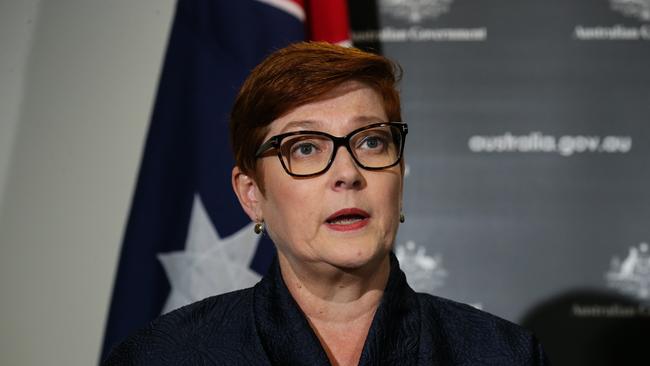
Leaders
Don't miss out on the headlines from Leaders. Followed categories will be added to My News.
Australia’s former foreign minister Julie Bishop says she thinks her successor should be on the next plane to the Solomon Islands to discuss the Pacific nation’s “disturbing” deal with China - in direct contradiction of the Prime Minister’s position.
Ms Bishop’s view was expressed before Scott Morrison told reporters that interfering further in the Solomon Islands’ inking of a major security pact with China would have been tantamount to “stomping all over” the nation.
The agreement to allow China to send military personnel to Solomon Islands has been signed off on after Australia’s Pacific Minister Zed Seselja’s last-minute dash to Honiara failed to stop it from being finalised.
The Prime Minister said it was a strategic decision to send the more junior minister to negotiate with Solomon Islands officials instead of Foreign Minister Marise Payne, despite widespread alarm about the impending deal.
“The judgment was made not to engage in a more - at a foreign minister level engagement - to ensure that Australia’s views were communicated very clearly, and very respectfully,” he said.
But during an appearance on Studio 10 on Wednesday morning, Ms Bishop said she believed that Marise Payne should be on a plane to the Solomon Islands.
“I’d be greatly concerned and I believe that our foreign minister should be on the next plane to Solomon Islands to talk with the government to see what’s actually being agreed and how that impacts on the security in the region more broadly and also on Australia’s security interests,” she said.
She said the deal was “deeply disturbing”.
“It’s the great power competition between the United States and China playing out in a region. The Solomon Islands is really close to Australia,” she said.
“We are their largest donor of foreign aid. The relationship between our two governments has always been very close.
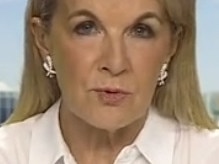
“Solomon Islands has been a great friend of the United States and now it appears that it has turned its attention elsewhere and has signed a security pact with China.
“While we don’t have all the details, this could well mean there would be Chinese military bases on Solomon Islands and that really changes the dynamic and environment in our area in our region.”
Mr Morrison said he had “spent countless hours” in meetings with Pacific Islands leaders since he learned of the security deal, which came to light when a draft agreement was leaked on social media in March.
“In particular, New Zealand and Australia worked very carefully on these issues and one of the things we strongly agree on (is) how we handle this issue within our Pacific family,” he said.
“You know, we’re siblings, they’re not children and adults in that relationship. We treat the Pacific family as siblings and as family and our view is very much that you don’t go around stomping around telling leaders in Pacific Islands what they should and shouldn’t do.”
Mr Morrison wouldn’t be drawn on whether the security agreement meant the government’s flagship “Pacific Step-Up” engagement program had failed in its aim of strengthening Australia’s relationships in the region.
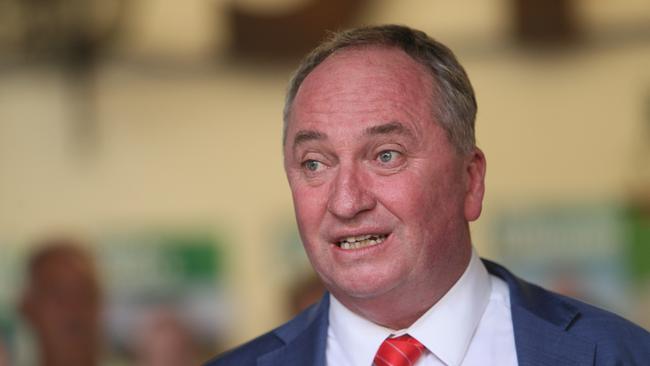
“The Pacific Step-Up was not a one or two-year program. It is an ongoing arrangement to demonstrate to the Pacific that we’re going to engage with you over the long-term and not treat Pacific Islanders as some sort of colony which was the impression they used to have,” he said.
“Now, we have been turning that around”.
Mr Morrison said it would be hypocritical to “lecture” Solomon Islands over its 2019 decision to sever longstanding diplomatic ties with Taipei to form an official relationship with Beijing, as Australia also recognises the mainland Chinese city as the nation’s only capital.
“That would be the height of hypocrisy and the height of arrogance and there’s one thing that does not characterise the way I deal with Pacific leaders – I treat them with respect and I respect their sovereignty and I respect their electoral mandates,” he said.
He stressed that Solomon Islands Prime Minister Manasseh Sogavare had ruled out allowing a Chinese military base in Solomon Islands to be built under the agreement.
Senators Payne and Seselja issued a joint statement on Tuesday saying Australia was “deeply disappointed” at the signing of the agreement.
“We are concerned about the lack of transparency with which this agreement has been developed, noting its potential to undermine stability in our region,” the senators said.
“We welcome recent statements from Prime Minister Sogavare that Australia is Solomon Islands’ security partner of choice, and his commitment that Solomon Islands will never be used for military bases or other military institutions of foreign powers.”
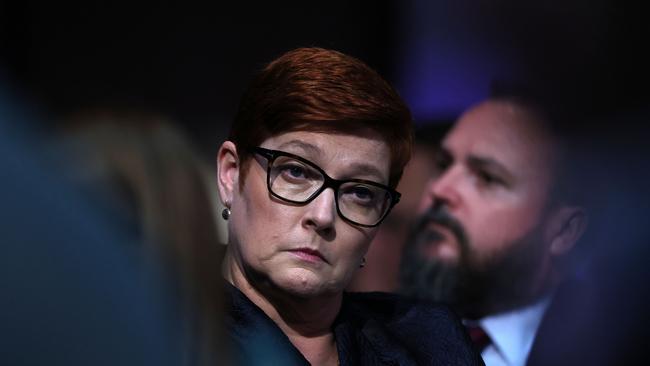
Senator Payne has rejected the “unfair characterisation” that she or Mr Morrison could have done more to stop the deal.
“I don’t think it recognises the sovereign decisions that governments of course make for themselves, and it also doesn’t recognise the strength and the engagement that Australia has made through the Pacific Step Up,” she said.
Mr Morrison earlier conceded the signing of the security deal came as no surprise, given the pressure Beijing has placed on the region.
Speaking with FiveAA radio, he defended his track record in the Pacific, insisting Australia remained a “priority relationship” with the Solomon Islands.
“We’ve focused very much on the Pacific because we know the risks and I think what we’re seeing there highlights those risks,” he said.
Barnaby Joyce was more blunt in his assessment of the deal because of concerns it could lead to Beijing establishing a military presence 2000 km off the coast of Australia.
“That will be absolutely – that’s a very bad day for Australia,” the Deputy Prime Minister told reporters in Mackay on Wednesday.
“We don’t want our own little Cuba off our coast and that is not what is good for this nation, not what is good for this region.”
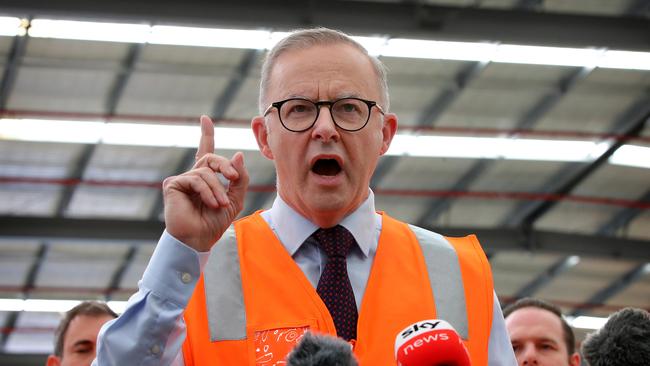
He continued by insisting the only way Australia could be strong and stand up to China was to “develop the Pilbara” in order “to make more money”.
“If you want to buy fighter planes or nuclear submarines, you got (to have) the cash in the bank to do it,” Mr Joyce said.
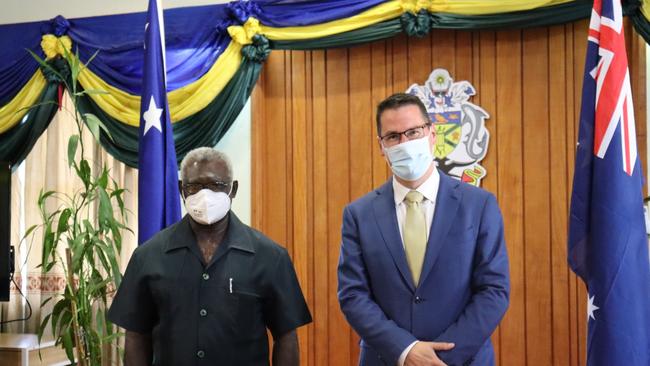
Anthony Albanese said a government under his leadership would have dispatched Labor’s foreign affairs spokeswoman Penny Wong to Honiara, and promised to personally travel there if he became Prime Minister at the May 21 federal election.
The Labor leader has been highly critical of the Morrison government’s handling of Australia’s relationship with Solomon Islands.
But asked twice on Wednesday how he would have handled the situation differently, he instead made a broad sweeping statement about beefing up engagement with the Pacific.
Senator Wong earlier slammed Mr Morrison for overseeing the “worst foreign policy failure since World War II”.
“On Scott Morrison’s watch, our region has become less secure and the risks Australia faces have become much greater,” she told the ABC.
“This should have been something that Mr Morrison dealt with, but he went missing.”
The US has also dispatched a delegation to Solomon Islands’ capital Honiara to discuss the prospects of China establishing a military presence in the country.
Originally published as Scott Morrison defends decision to send junior minister to Solomon Islands before China deal inked
Read related topics:Scott Morrison


